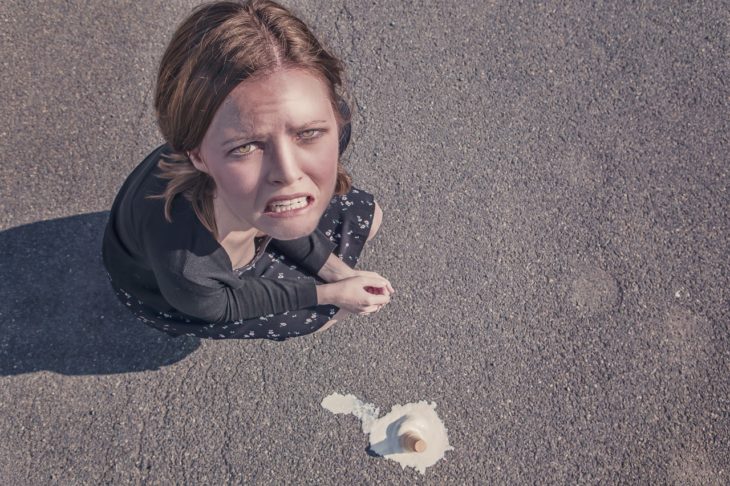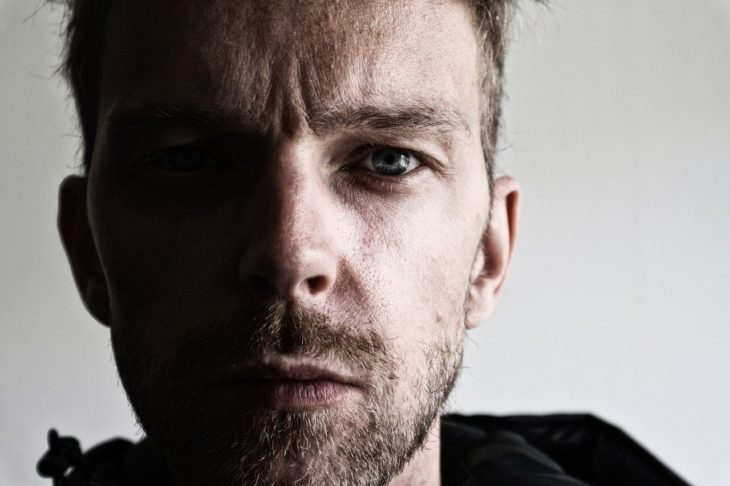I can appreciate that you all feel a little bit sad sometimes.
When your spoon slowly scrapes the last bit of ice cream from the tub. As you get to the final sips of your warm cup of tea on a chilly morning. And of course, that moment when you realize no one is coming to Ned’s rescue in season one of Game of Thrones.
Truly shattering.
But, as difficult as each of these moments are, they pale in comparison to true depression.
You see, depression is different.
As a Board Certified Psychiatrist and depression specialist at Success TMS, I know that it is so much more than just feeling down. Depression is an overwhelming sense of helplessness that impacts every facet of your physical and mental being. It can hurt you, your closest friends, and your family.
To make matters worse, it has recently become the most common mental health disorder on the planet.
According to the ADAA, 18% of the population suffers from depression.
In short, something needs to change – and it all starts with recognition, and then acceptance.
So, without further ado, the 17 warning signs of depression that you need to look out for.
Contents
- 1. A Hopeless Outlook
- 2. Feeling Anxious All The Time
- 3. Being Unable To Control Your Emotions
- 4. Changes In Weight And Appetite
- 5. An “I Don’t Care” Attitude
- 6. Substance Abuse
- 7. Fatigue + Loss Of Energy
- 8. Problems Sleeping
- 9. Constant Sadness
- 10. Self-Loathing
- 11. Loss Of Interest In Your Favorite Activities
- 12. Isolating Yourself
- 13. Inability To Concentrate
- 14. Low Sex Drive
- 15. Digestive Problems
- 16. Unexplained Muscle Pains
- 17. You No Longer Care About How You Look
- So, Now What?
1. A Hopeless Outlook
Major depression seriously impacts how you feel about your life in its entirety. Everything starts to seem completely pointless, and you may even find yourself wondering why you should bother doing anything at all.
You find yourself without hope.
So, if you are constantly asking yourself “what’s the point”, then a change might be needed, and help may need to be sought out.
2. Feeling Anxious All The Time
While anxiety and depression are a far cry from the same thing, people with depression often suffer from excessive feelings of anxiousness.
This may present itself as an unexplainable and irrational sense of nervousness in what most would consider “fairly normal situations”. You may even find yourself feeling short of breath, sweaty, or panicked, for absolutely no reason at all.
These are a sure sign of anxiousness, which may actually indicate an underlying case of depression.

Source: pixabay.com
3. Being Unable To Control Your Emotions
Depression is typified by an overwhelming sense of sadness – but more than that, it also wreaks havoc with your emotions in a much more general sense as well.
This means that one minute you might find yourself sobbing uncontrollably, while the next you are irrationally angry.
This emotional rollercoaster can be a sign of something much more severe than a simple little mood swing – it can be a sign of depression.
4. Changes In Weight And Appetite
It is not uncommon for people to see some extreme changes in weight when suffering from depression.
Moreover, they can be completely different from person to person.
Some people fall into a depressive state and use food as a crutch. They eat to fill an emotional void, even despite the fact that they may not be hungry at all. Alternatively, some people lose hunger and stop eating completely.
Both offer a completely different way of coping, and both result in wild weight fluctuations in completely different directions.
Both can be a sign of depression.
5. An “I Don’t Care” Attitude
People with depression tend to experience a change in how much they value life – not only their own but life in general.
You might not care if something happens to you. You might perceive your life to be less important, less sacred, and more expendable; suicidal thoughts might come to mind.
You might not care if you get fired from your job.
You could come off as irritable, not caring how you sound to people or what they think.
As I am sure you can perceive from reading this, it’s not a good outlook to have. As a result, they also choose to undertake more risk-taking behavior than they would normally.
So, if you find yourself having suicidal thoughts, then you might need to take a step back and consider why this may be happening. Seek help asap.

Source: unsplash.com
6. Substance Abuse
The overwhelming sadness caused by depression can cause you to seek ways of escaping your feelings completely.
And the most common way of achieving this is with substances.
This may present itself in the form of excessive alcohol consumption, or in the form of you seeking out illicit substances at every opportunity – something that many would agree, is not the healthiest coping mechanism.
7. Fatigue + Loss Of Energy
Although depression is indeed a mental disorder, it can manifest itself into several physical symptoms – one of which is a complete and utter loss of energy, in conjunction with feelings of fatigue.
This means struggling to find the energy to even get out of bed in the morning, or just feeling physically flat and tired all the time.
If prolonged, this loss of energy can indicate that something else may be wrong.
8. Problems Sleeping
The distress caused by being stuck in a state of permanent depression can seriously interrupt your body clock.
This can make it damn near impossible for you to fall asleep, even when you are so tired that you can barely keep your eyes open.
Over time this can result in the development of some very obscure sleeping patterns – which often act as a serious warning sign of depression.

Source: pixabay.com
9. Constant Sadness
This sign may sound a little obvious, but that doesn’t make it any less important.
During a bout of depression, you can find yourself falling into a state of near constant sadness – one that nothing can get you out of.
This means that even when you are doing things that once gave a whole lot of joy, you still feel sad.
Watching your favorite movie? Sad.
Spending time with your friends and family? Sad.
Getting home to your dog? Sad.
Well, I am sure you get the picture.
The main thing to look out for here is a perpetual state of sadness that never seems to end. You wake up sad, you go to bed sad, and you feel an unshakable sense of sadness for every hour in between.
10. Self-Loathing
With this constant state of sadness can also come a deep sense of self-loathing. An unexplainable sense of hatred for everything that you are.
You might find yourself truly believing that everything you do is below average. That there is no point even trying, because you will never be good enough. That you are, in short, completely and utterly useless.
It’s a terrible state to be in, and one that is a sure sign of depression.
11. Loss Of Interest In Your Favorite Activities
I think that most people could name at least 2 or 3 activities that bring them a true sense of joy.
Some examples
- Going out to breakfast with your partner.
- Going for a run outside with your dog.
- Catching up with close friends for a BBQ and couple drinks.
These things bring genuinely spark a sense of joy. Just thinking about them brings a smile to my face, and I get truly happy just thinking about them.
But depression can take this away.
Or at least, it takes away this response.
Your favorite activities start to seem meaningless. You have no desire to do them, they may fill you with nothing but dread, and even thinking about them seems like too much effort.
12. Isolating Yourself
Building on the above point a little further, it is quite common for depression to cause you to isolate yourself from everyone you care about. Social settings can become overwhelming and unenjoyable., the desire to simply talk with people disappears.
Particularly for outgoing people, this isolation is a definitive sign of depression.
13. Inability To Concentrate
I have already mentioned how depression can present itself in a loss of energy and the onset of physical fatigue – but what I failed to touch on earlier is that it can also manifest itself into a state of mental fatigue.
This ultimately means being in a permanent state of brain fog.
It becomes harder to focus and maintain concentration, your problem solving and decision-making abilities go to all hell, and your work capacity plummets.
14. Low Sex Drive
Research has shown that people suffering from depression actually see some serious changes to the levels of key brain chemicals in their body – which explains some of the huge variations in mood that they can see.

Source: pexels.com
These changes can also cause a decline in sex drive.
This often comes with a complete loss of desire or want for sex, and in males, can even cause impotence or erectile dysfunction.
15. Digestive Problems
Did you know that your gut and your brain are intricately linked?
Well, they are, and research has shown that disruption in one can also lead to a disruption in the other.
For some, this means that eating foods that don’t agree with your body may, in turn, harm your mental health. Alternatively, being in a state of poor mental health can also harm your gut.
This means that people with depression often experience unexplained digestive problems, including irritable bowel syndrome, stomach aches, and even constipation.
If these symptoms persist over a long period of time, it may be a symptom of depression.
16. Unexplained Muscle Pains
In a very similar vein to the above point, your mental state can also impact your muscles and nervous systems. As a result, depression can cause weird muscle and joint pains – in some scenarios, it can even cause muscle cramping.
This is ultimately another sign of how your mental health truly impacts every other aspect of your body – reconfirming why it is so important that you look after it.
17. You No Longer Care About How You Look
Last (but certainly not least), during a severe bout of depression, you often find yourself experience a complete lack of care about your appearance – I mean nothing really matters, so what’s even the point, right?
While this mindset may indeed seem a little bit irrational, in the mind of someone suffering from depression, it is completely normal.
And it is for this same reason that a lack of self-care may indicate something much more sinister.
So, Now What?
You might have been having a bit of a hard time recently – then, reading through this list, it clicks.
You think you might be suffering from depression.
But what can you do about it?
Well, the first thing to remember is you are not alone. There are millions of people across the globe successfully fighting back their depression every single day. Like you, they are willing to face their challenges head-on, and improve their life in any way possible.
The second thing to remember is that depression isn’t a death sentence.
There are several different treatment options for depression that have been shown to be extremely effective. Some of these are all-natural, some involve supplements, while others may even use medication.
Just remember that they all have a time and a place, and that they can all work.
Finally, seek help.
Depression isn’t a weakness, flaw, punishment or defect. It’s not the new you. It is a serious clinical condition that both health professionals and your friends and family can help you with – so be open and get advice – it will make a world of difference.
